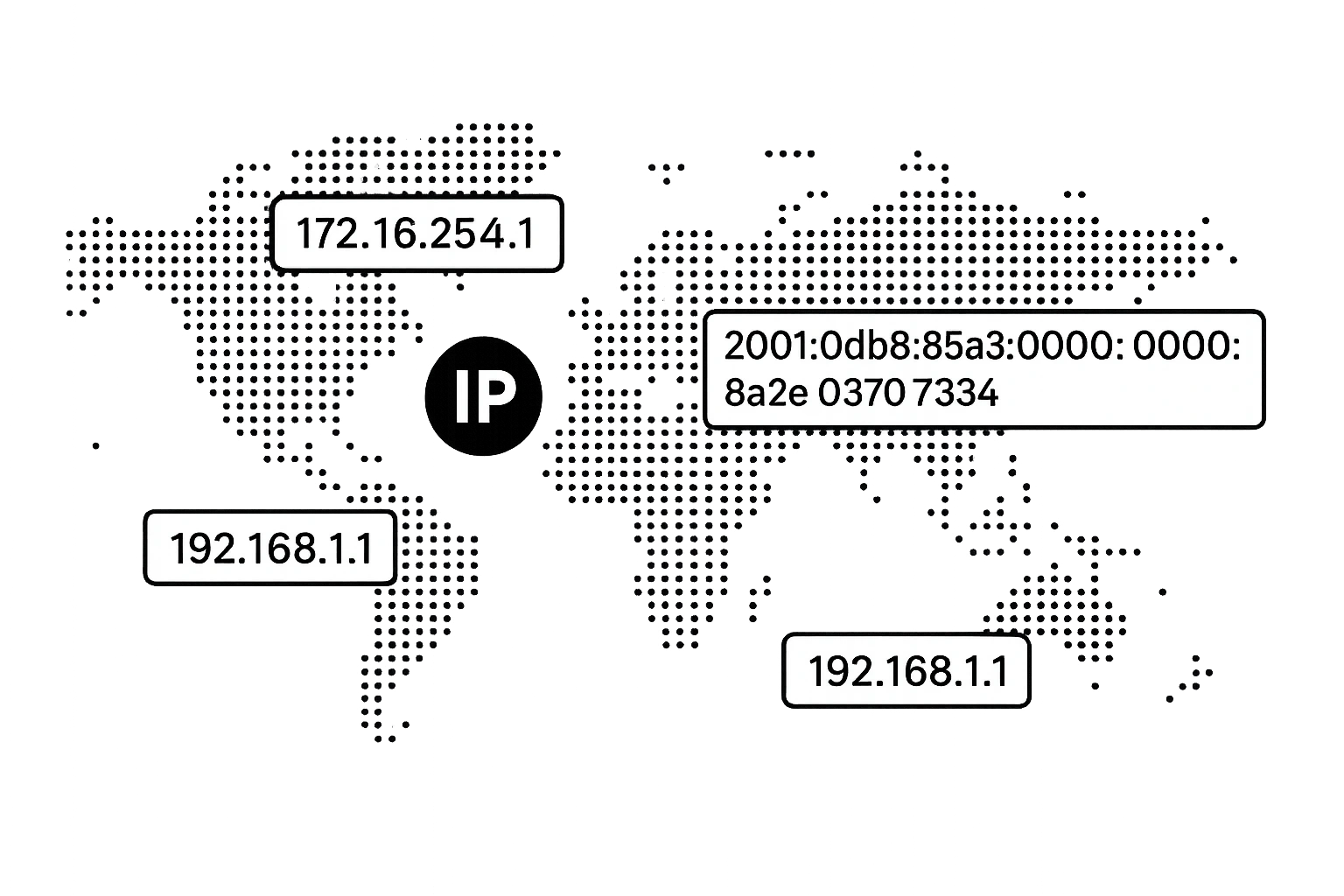Your public IP
—
—
—
Tip: if you’re behind a VPN/proxy, the IP shown is what our servers see. We don't store any data, we just display it.
An internet protocol (IP) address is a device’s digital identifier on the internet. It’s a unique string of numbers assigned to a computer, phone, or any other internet-connected device. Much like a physical address or home address is needed to receive mail, a device requires an IP address to send and receive data online.
For instance, when you enter a website URL into your browser, your computer uses the IP address to locate that website’s server, connect with it, and retrieve the webpage.
Similarly, if you want to manage a physical server in a data center or a virtual instance in the cloud, you’d be working with its IP address (also known as hostname) to manage it.
IPv4 and IPv6 represent different IP addressing systems.
IPv4 is the old version launched in 1981. It uses 32-bit addresses, which creates a finite limit of unique addresses. There can only be about 4.3 billion combinations. Periods are used to separate groups of digits.
IPv6 is a new version launched in 1998. It was developed to address the shortage of IPv4 addresses. It uses 128-bit addresses with 340 undecillion combinations. Colons are used to separate groups of hexadecimal digits.
The transition to IPv6 has been gradual. 70-80% of all internet traffic still relies on IPv4. But IPv6 usage continues to increase as the internet expands.
If you need to change your IP address, you can do so in several ways—such as restarting your modem or router, switching to a VPN, using mobile data, or requesting a new address from your ISP.
Note: If your IP address is tied to business services like websites, mail servers, or VPS hosting, remember to update your DNS records so users can still reach your services at the new address.
At LifeinCloud, every VPS comes with a dedicated IPv4 address and optional IPv6 support. This means:
Your IP address can reveal limited information, but not nearly as much as many people think. An IP lookup may show your approximate location (such as a city or region) and the name of your internet service provider (ISP).
What it cannot do is expose your exact street address or personal data. On its own, an IP address is only a rough indicator of where your connection comes from—not a direct map to your identity.
Privacy tip: If you want to hide your IP address or stop websites from tracking your location, you can use a VPN, proxy, or privacy-focused browser. These tools mask your real IP, protect your identity, and give you more control over what information you share online.


